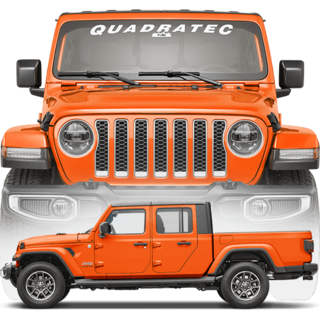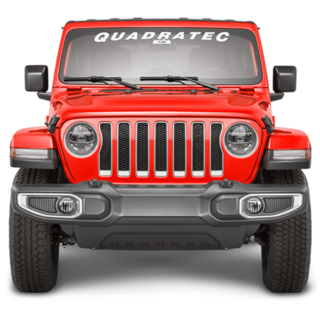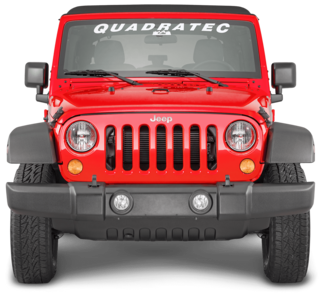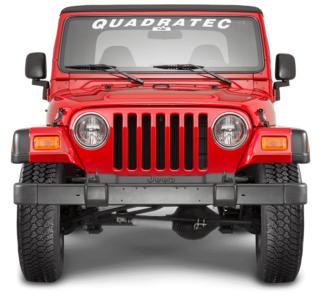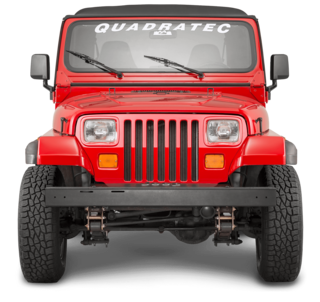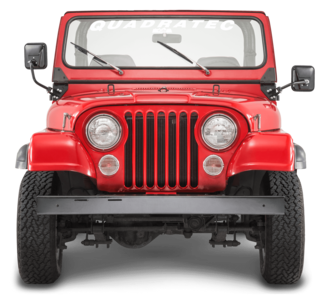Backside Setting/Back Spacing - The measurement from the mounting pad to the inner edge of the wheel.
Bead - Lip on the wheel that retains the inside of the tire to the rim.
Bead Lock Wheel - A "Beadlock" is a device which clamps the tire bead in place using mechanical means rather than air pressure. This is commonly done by having a lip on the wheel rather than a 'bead' and a ring locked in place with bolts clamps the tire. This allows the tubeless tire to be run at very low pressure without the worry of air loss or the tire coming off of the rim when striking a rock, pothole, curb, etc.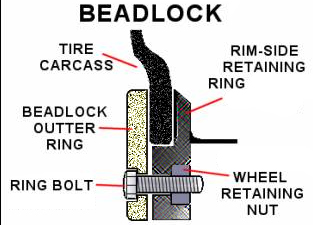
Bead Seat - The position where the tire rests and seals on the inside of the rim.
Bolt Circle - The diameter of an imaginary circle drawn through the center of each lug hole. Also referred to as the bolt pattern.
Center Bore - The hole in the center of the wheel machined to match the hub of specified vehicles with hub-centric wheels and machined to a generic size with lug centric wheels.
Hub Centric - The center bore hole of a wheel matches the hub diameter of the vehicle. This centers the wheel via the center hole rather than the lug nuts.
Lug Centric - When the wheel is centered by the bolt holes/ lug nuts of the wheel, rather than by the center bore. Lug centric wheels should be balanced from the bolt holes.
Mounting Pad - The surface area on the back of the wheel's center that contacts the brake drum or rotor surface.
Offset - The offset of the wheel is the distance from the mounting pad to the centerline of the wheel.
Negative Offset - When the mounting surface is closer to the disk/drum (Inside) of the wheel. Or the mounting pad is behind the centerline of the wheel. This type of wheel is commonly referred to as a deep-dish wheel. This offset is common in older vehicles and many of today's trucks and will bring the wheel/tire combination out away from the vehicle.
Positive Offset - The mounting pad is forward of the centerline of the wheel, towards the street side of the wheel. This is common in most front wheel drive cars and some newer trucks. Generally speaking a positive offset wheel brings the wheels closer to the center of the vehicle.
Rim Width - The width of the custom wheel, measured from bead seat to bead seat not edge to edge.
Rim Diameter - The overall diameter of the wheel's bead seat, not the diameter of the rim edge.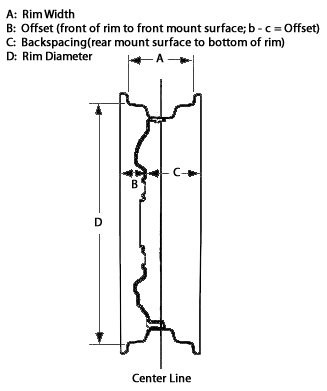
Rim Flange - The outermost edge of the wheel's rim that the clip-on weights attach to on most wheels.
Safety Bead - The raised area circling the rim of the wheel and located slightly inward from the bead seat.
Spring Clips - Push on retainer clips that hold the brake from on the disc rotor to the axle during transportation.
Star Pattern - The proper way for sequential torquing of the lugs in a 5 lug bolt circle.
Torquing - The securing of the wheel/tire assembly to the automobile by the tightening of the wheel's lug nuts to the studs of the vehicle's hub. Custom wheels should always be torqued with a manual torque wrench (not an impact air wrench) to torque rating specifications followed by periodic re-torquing.
Torque Rating - The proper pressure to be applied in foot pounds when tightening lug nuts to secure the wheel/tire assembly to the automobile.
Unsprung Weight - The total weight of the vehicle not supported by the suspension system. For example wheels and tires.
Wheel Weights - Weights that are used to balance the wheel/tire assembly. They are either clipped, taped, or self adhered to the inside or outside of the wheel.
Zero Offset - The distance from the mounting pad to the centerline of the wheel is 0.

